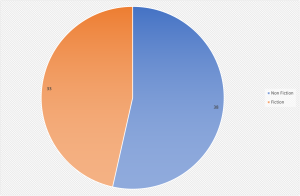I’m starting with a couple of lengthy articles today, which are both worth reading in themselves but also talk to each other in interesting ways.
Unintentional conversation: ”A Matter of Time” by Gabriel Sherman, and ”What Happened to Motorola?” by Ted C. Fishman
Though the businesses in question are quite different, in essence these two pieces are both about the difficulty of figuring out how to change something that has worked very well for a long time. The first is about the struggle of Time, Inc., to adapt to the digital media world, and in many ways it is the same old story: print’s collapse, the struggle to replace lost ad revenue, etc. But, on the one hand, Time is such a long and storied company that this example seems particularly poignant, at least to me. On the other hand, it’s easy to forget that many of its magazines were, when they began, pretty disruptive and innovative. TIME, itself, was designed as a kind of weekly briefing to help the average person understand the news of the world, something that many at the time thought would never have a market (a good example of the fact that underestimating the general public, while popular, is not usually a good strategy in the long term). My point being that this is a company that rose to prominence by finding a new way to do something, and which is now in trouble in part because no one can think of a way for it to do what it does in a new way.
Which brings us to Motorola. In the case of Time, Inc., there’s really no question about why the company is in difficulty: the environment in which it operates altered radically in a pretty short period of time. The question there is whether it will be able to adapt. While Motorola has experienced a similar decline, in that case the company’s problems seem to be, at least in part, of its own making. (I suppose one could see the advent of the smartphone as a big, environmental change that the company struggled to respond to, but since Motorola pioneered a lot of the technology involved in that, it’s harder to see them as innocent bystanders). In hindsight, it’s pretty easy to see some of the key decisions— or lack of decision— that pushed the company away from innovation and leadership toward iteration and playing catch-up, and of course that makes it seem as though those moments should have been obvious at the time. Of course, such things are much harder to see from close up. But the big question at the center of this piece is how a culture of innovation can be created, how it can be sustained, and why it might disappear.
It’s interesting, with that in mind, to think about the differences in the challenges faced by Time and Motorola. Some might argue that Time and other “old media” companies should have seen the changes coming and responded to them more quickly, but wherever one stands on that question it seems inarguable that those changes came out of an entirely different domain from the one in which a company like Time was operating. They knew reporting, and printing, and writing about complex topics for a general audience, and selling ad space to companies who were pretty certain of the audience they would be reaching from TIME’s pages. They weren’t computer scientists or programmers, and none of their expertise or experience in journalism would help them to understand what the internet would do.
Motorola’s case is different, because the threats to their business came, precisely, from within their domain, from similar companies that made similar kinds of products. It seems that the expertise and experience they needed was, or should have been, at the core of what the company did. I think there is a common tendency to attribute all business failures to problems of leadership and decision making, but these two examples show that, if nothing, else, the point at which leadership becomes the problem is not always the same.
Article: ”I am not emotionally prepared for Twitter to suck” by Vlad Savov.
Partly a rant about the whole Twitter favorites debacle, this short piece also asks an important question about the ownership of all the data we produce and put into social networking sites, as well as the value of the services they provide and what happens when we depend on them and there is no viable alternative. In other words, if in their attempts to find a way to make money (which they have to do), Twitter ruins their service, what do we do? There isn’t really anywhere else to go (App.net being more or less abandoned), and while access to Twitter isn’t exactly a necessity like food or water or even access to the internet in general, many people have come to depend on it as a source of information (and entertainment), and a way of keeping in touch with others. While the transformative role of Twitter in the recent Arab Spring revolutions, for instance, was maybe not as dramatic as some reports suggested, there’s no doubt that its speed, versatility, and low barrier to entry made the service a valuable resource for people during those events. So are we okay if it doesn’t work any more? What kind of responsibility (as opposed to market incentive), if any, does a company like Twitter have to keep its service usable in the particular ways that people have gotten used to?
And when you’re done reading all that, here are some nice things to look at:
Article/Photos: ”Fan Ho’s Fantastic Black-and-White Street Photographs of 1950s Hong Kong”, text by Gannon Burgett
Subject of a recent exhibition, Fan Ho’s photos depict a Hong King dramatically different from today. In addition to their documentary value, though, they are also beautiful photos.
Hard to choose a favorite, but this is probably mine: ![]()
Article/Photos: ”Deadly Beauty: A Portrait of the Portuguese Man-of-War”, text by Jane L. Lee, images by Aaron Ansarov
Equally beautiful but totally different, Aaron Ansarov has a series of photos of the very, very poisonous Portuguese Man of War, which look eerie and entirely alien:

Animated GIFs: Bees and Bombs by David Whyte
Finally, a series of animated GIFs created by physics hard student David Whyte, based on mathematical models used in his research. If you like looking at fractals, M.C. Escher, or both, you will enjoy these. The page can take a while to load, but it is worth it.
via Colossal


